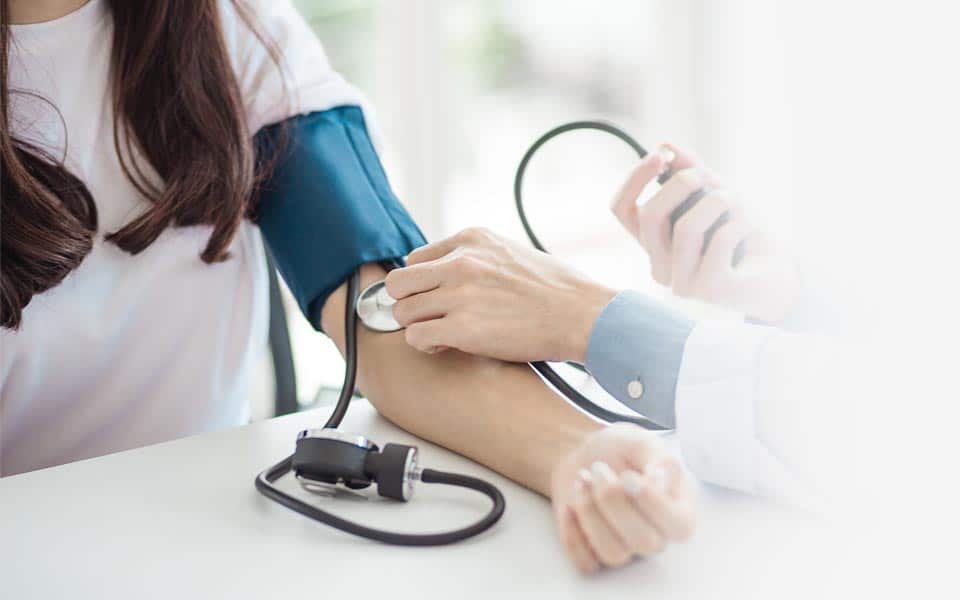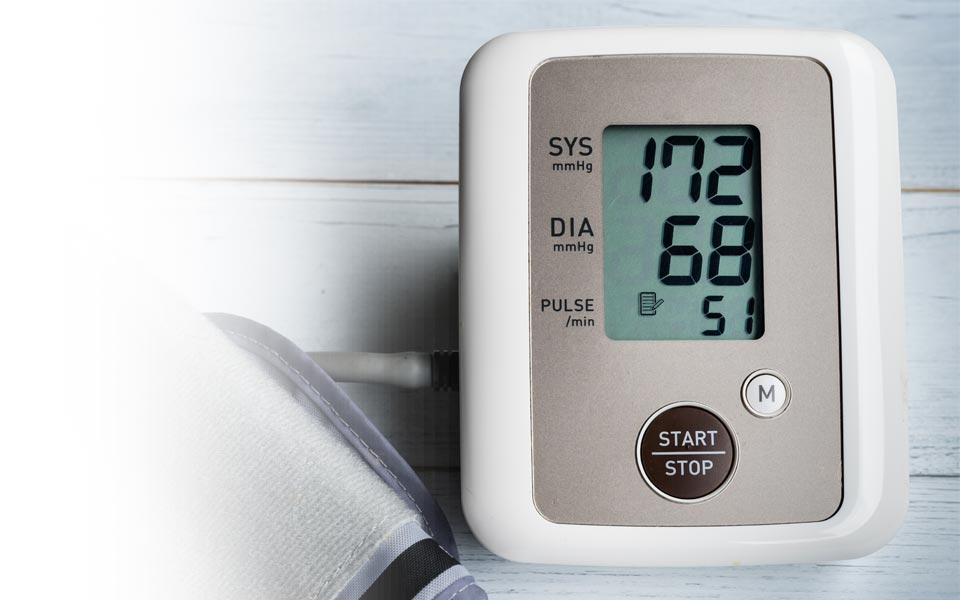Hypertension
Dealing With High Blood pressure

Hypertension is the medical term for high blood pressure. Blood pressure measures how much blood the heart pumps along with the amount of force the blood has in the arteries. If the pressure becomes too high, certain health conditions can occur. Narrowing of the arteries causes the heart to work harder is a leading cause of hypertension.
In the beginning stages of hypertension, patients may not have any symptoms; however, damage to the heart and blood vessels still occurs. If blood pressure isn’t controlled, patients can suffer from a heart attack or stroke. Generally, blood pressures slowly rise over a period of time. Luckily, blood pressure is easily monitored.

Symptoms of Hypertension
Many hypertensive people exhibit no symptoms. Others may notice they have a dull headache that is not relieved with over the counter pain medications. Patients with hypertension may also experience dizziness or nosebleeds. Usually these symptoms do not occur until blood pressures is extremely high and life threatening.
Normal blood pressure ranges are below 120/80. During the early stages of hypertension, called prehypertension, blood pressure runs between 120/80 and 139/89. When blood pressure levels get higher than 140/90, patients are considered hypertensive. People with hypertension may experience shortness of breath, chest pain and blurred vision.

Causes of High Blood Pressure
There are two types of hypertension- primary hypertension and secondary hypertension. Primary hypertension has no discernable causes. This type of hypertension gradually develops over a period of years. Secondary hypertension appears suddenly and is a result of a medical condition.
Secondary hypertension has many causes. The list of medical conditions that can cause hypertension is quite large. Kidney problems and renal failure can cause many people to develop hypertension. Thyroid problems and adrenal gland tumors may also raise blood pressure. There are also congenital birth defects that can cause hypertension. Medications, alcohol and illegal drugs can raise blood pressure. Medications including over the counter pain relievers, cold medicines, birth control pills and decongestants can increase blood pressure and result in hypertension.
Risk Factors for Hypertension
As patients age, the risk for high blood pressure increases. Men tend to develop high blood pressure around 45, while women tend to develop blood pressure measuring hypertension after age 65. African Americans tend to develop hypertension at an earlier age and are more prone to suffer from renal failure, stroke and heart attacks than other races.
Patients with a family history of hypertension or who are overweight are more likely to be hypertensive. Those who are not physically active normally have a higher heart rate. As heart rates climb, the more pressure builds up in the blood. Stress along with chronic medical conditions such as sleep apnea and kidney disease also increase the risk factors.
Consuming tobacco products, excessive amounts of sodium and alcohol can also increase the risk of hypertension. It is also caused by deficiencies in potassium and vitamin D. Potassium helps the body to balance sodium in the body while vitamin D is necessary for enzyme production in the kidneys.

Are you suffering from high blood pressure or hypertension?
Call us at (833)767-3935 and set up an appointment with our integrative physician.
